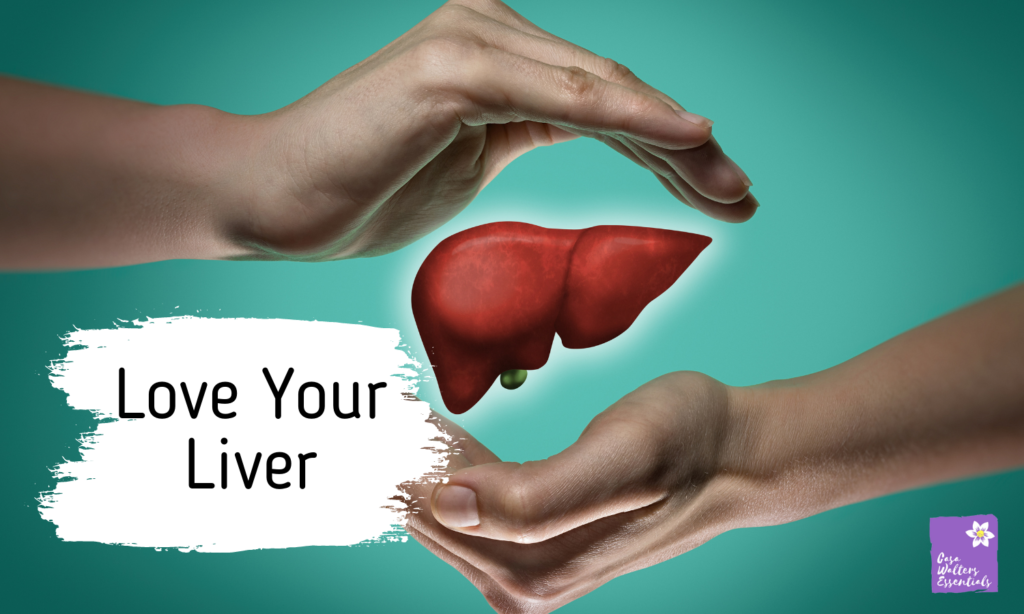Your liver is the largest organ inside your body. It helps your body digest food, store energy, and remove poisons. Fatty liver disease is a condition in which fat builds up in your liver. There are two main types:
- Nonalcoholic fatty liver disease (NAFLD)
- Alcoholic fatty liver disease, also called alcoholic steatohepatitis
NONALCOHOLIC FATTY LIVER DISEASE (NAFLD) is a type of fatty liver disease that is not related to heavy alcohol use.
There are two kinds:
* Simple fatty liver – you have fat in your liver but little or no inflammation or liver cell damage. Simple fatty liver typically does not get bad enough to cause liver damage or complications.
* Nonalcoholic steatohepatitis (NASH) – inflammation and liver cell damage, as well as fat in your liver. Inflammation and liver cell damage can cause fibrosis, or scarring, of the liver. NASH may lead to cirrhosis or liver cancer.
NAFLD affects about 25% of people in the world. As the rates of obesity, type 2 diabetes, and high cholesterol continue to rise in the United States, so does the rate of NAFLD. NAFLD is the most common chronic liver disorder in the United States.
Alcoholic fatty liver disease is due to heavy alcohol use.
Your liver breaks down most of the alcohol you drink, so it can be removed from your body. But the process of breaking it down can result in harmful substances that can accumulate in the body. These substances can damage liver cells, promote inflammation, and weaken your body’s natural defenses. The more alcohol that you drink, the more you damage your liver. Alcoholic fatty liver disease is the earliest stage of alcohol-related liver disease. The next stages are alcoholic hepatitis and cirrhosis.
Alcoholic fatty liver disease only happens in people who are heavy drinkers, especially those who have been drinking for a long period of time. The risk is higher for heavy drinkers who are women, have obesity, or have certain genetic mutations.

There are a few well-recognized risk factors of possible fatty liver. If any of the following are true for you, it may be time to take a closer look and show your liver some extra TLC:
- Obesity. Research shows that, above all, obesity is a clear risk factor. Around 70% of obese people have fatty liver disease, while only 10-15% of people with a healthy body mass index do.
- Have high levels of fats in the blood, such as cholesterol and triglycerides.
- Have type 2 diabetes and prediabetes.
- Are Hispanic, followed by non-Hispanic whites. It is less common in African Americans.
- Have high blood pressure.
- Have been exposed to some toxins.
But here’s the thing…Both NAFLD and alcoholic fatty liver disease are usually silent diseases with few or no symptoms. If you do have symptoms, you may feel tired or have discomfort in the upper right side of your abdomen. The best way to check if you have fatty liver disease is to talk to your doctor to have a complete physical examination that includes medical history and certain diagnostic tests.
The good thing is that we can make changes to your lifestyle right now if you have fatty liver disease or to reduce your risk factors of fatty liver disease. Here’s some things you can put into action to love your liver:



Eat a healthy diet, limiting salt and sugar, plus eating lots of fruits, vegetables, and whole grains.
- Don’t make this complicated! Just add more leafy greens to your meals and choose less refined foods that come in a box. Drink lots of water! Hydration is essential for liver function! And supplement with the Lifelong Vitality Pack to get essential nutrients, vitamins, and powerful antioxidants that you may not be getting from your food.
Exercise regularly.
- A sedentary lifestyle is a huge risk factor for not only fatty liver disease but other health conditions as well. Aim to exercise 20-30 minutes 3-5 times a week. If starting a new exercise program is daunting, remember to START SMALL. Take walks around your neighborhood or around the parking lot during your breaks at work. Walking alone can provide amazing health benefits!
Limit your exposure to toxins.
- Although we can’t control all the toxins we encounter in the environment, we do have 100% control of what beauty products, personal care items and home cleaning products we put on our bodies and bring into our homes. Choose natural, toxin-free products or make your own using pure, powerful essential oils. If you feel you can use a period of detox to cleanse and restore your body, check out our 30-Day Detox program.
Limit or avoid sodas and sugary drinks.
- Drinks that are high in sugar and artificial sweeteners such as juice, sport drinks, soda and alcohol can adversely affect your health. These drinks can also contribute to Fatty Liver Disease and inflammation in the body. Try swapping out those sugary drinks with sparkling water with citrus fruits or essential oils, herbal teas, and water.
Ease up on over-the-counter medicine.
- Consuming too much NSAIDs and acetaminophen can harm the liver. About one-third of liver-failure cases and severe liver disease are associated with excessive use of acetaminophen, the active ingredient in Tylenol. Keep in mind that before any medication can be effective, it must be processed by the body, and that job falls largely on the liver. The more pharmaceuticals we ingest, whether it’s prescription or over-the-counter drugs, the harder the liver must work.
Limit or avoid alcohol consumption.
- Alcoholic beverages can cause a myriad of health conditions. Talk to your professional healthcare provider what amount of alcohol is right for you.
When all is said and done, how our bodies work and do what they are designed to do, comes down to how we take care of them on a daily basis. Making small, intentional choices about food, movement, and even how to relax at the end of the day, can have a huge impact on our overall health.
If you think you are, you know you are, one of the millions suffering from Fatty Liver Disease, work with your professional healthcare provider to come up with a plan to treat and even reverse the damage done to your liver.
If you’re ready to take control of your health naturally with the power of essential oils, let’s set up a time to chat about what that could look like for you and get ready to reap all the health benefits of a toxin-free, healthy lifestyle. It can help set you on the path to optimal health and wellness!
Blessings
Romelia
🙂


